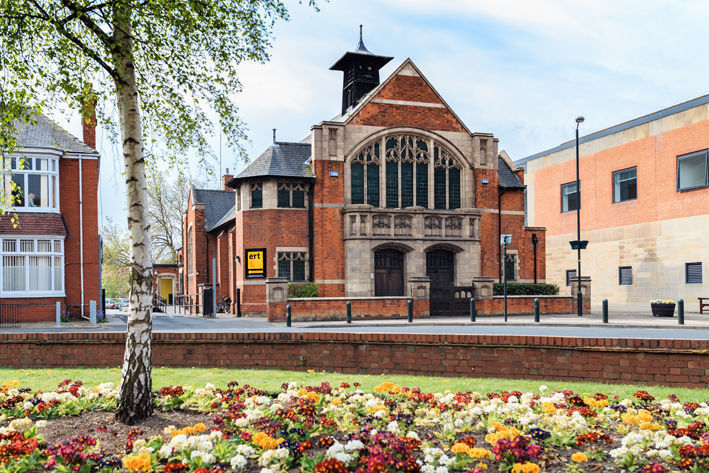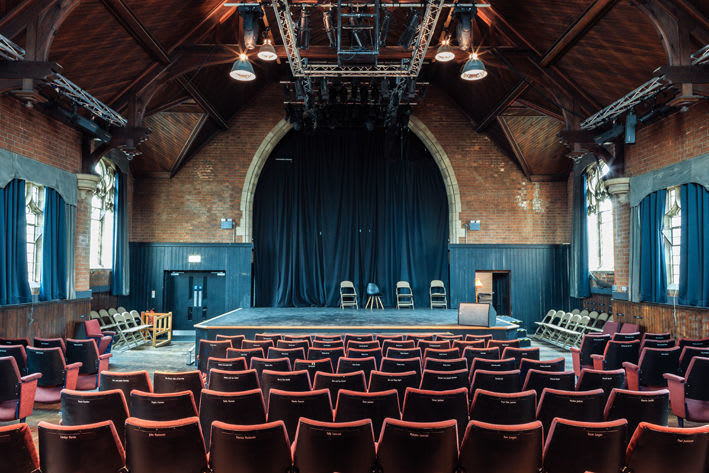The opening of Great Expectations at The East Riding Theatre completes the Dickens trilogy, which started with A Christmas Carol at the theatre's opening in 2014 and continued last year with Oliver Twist.
If the first two adaptations are anything to go by, there will be little that is overly sentimental or cloying about the last instalment. Rather, these dramatisations place an emphasis on presenting the harsh realities of Dickens's world, whilst being theatrically daring, energetic and highly engaging. This year's offering has been adapted by the theatre's founder Artistic Director, Vincent Regan.
"For me, Great Expectations is Dickens's finest work", says the play's director, Andrew Pearson. "The range of characters is just so rich and the story is utterly compelling". The novel (Dickens' penultimate) has been adapted numerous time for the small and large screen as well as the stage with three adaptations (aside from this one) in the last three years.
What are the magical ingredients that keep this story so alive in the public's imagination? "Perhaps the old fashioned combination of romance and adventure together with characters that only a mind like Dickens could invent", says Pearson. It's hard to disagree. Is there really another novelist who could have created mad old Miss Haversham, still adorned in her wedding weeds and surveying the rats inhabiting the ruins of her wedding cake? Or Magwitch, the escaped convict turned philanthropist first preying on and then sponsoring the central character, Pip?
Playing these two principal roles are Janet Prince and Stephen Frost—married in real life and now appearing on the stage near Janet's birth place of Willerby. They are joined by a large cast of professional and community players, a format that the theatre has used in both previous Dickens adaptations. Such a strategy reflects the community-minded nature of the people who fought for and now run the theatre. As someone who has been fortunate enough to have a play produced there recently, I found it impossible not to be impressed by the level of support the theatre receives from the good will of local people.
Despite the Victorian roots of Great Expectations, the stage will not be filled with mob caps and petticoats, Pearson informs me. "Costume will suggest the period but not be slavish to it" he says, "the emphasis is on character and atmosphere".
Establishing part of that atmosphere will be a musical score weaving traditional and new music, penned and arranged by Paul Frankish. Frankish, who has worked as a musician on West End shows such as Wicked and Les Miserables, is also a home-grown talent, one of many afforded opportunities by the theatre's ever adventurous programme.
Beverley may seem like the epitome of Middle England—a beautiful, historic, market town—but ERT can hardly be accused of playing it safe or trying to court some kind of mythical "I know what I like and that doesn't include smut" suburban audience. Amongst a wealth of new writing and edgy revivals since its opening, it has staged David Harrower's Blackbird, Sparrow (a re-working of Joe Bennett's The Butler) and A Steady Rain by Keith Huff, featuring Vincent Regan which enjoyed a sell-out transfer to The Arcola Theatre in London.
Earlier this year was a punchy and hard-hitting Hamlet, and they even had the grace and kindness to stage the first major revival of my own modest offering, As We Forgive Them, to coincide with the US election last month. Furthermore, ERT has named its resident theatre company as She Productions, an all-female collective which presented a revival of The Vagina Monologues, The storytEllas, a piece of children's theatre during the summer holidays, and whose members are currently working on a play about the country's first ever girl band.
Having an undeniably welcoming atmosphere led to ERT being awarded Best Entertainments Venue by the Best Bar None Awards in 2016. If this all feels as though the venue is an assured part of the regional cultural scene into the future, don't be too confident. ERT has achieved great things through the sheer determination of its founding members and the skills of its creative team along with loyal support from some local businesses.
However, this isn't enough to sustain a venue for the long term. It is one thing to dream of opening a theatre, it is quite another to see that theatre consolidated through support from regular funding sources. The imbalance between funding for the arts between regions has been well documented and, despite Hull's status as City of Culture 2017, there are no guarantees for ERT.
As someone who has been fortunate enough to have work put on there and, more importantly, to see the exciting work of others, I have no doubt that ERT has a role to play in the development of the cultural scene of the region. It is to be hoped that imaginative funders from both public and private sectors, who are in a position to secure its future, agree.


